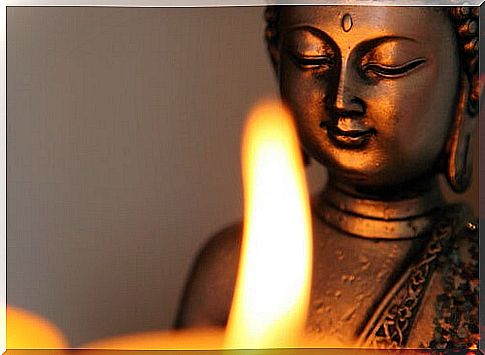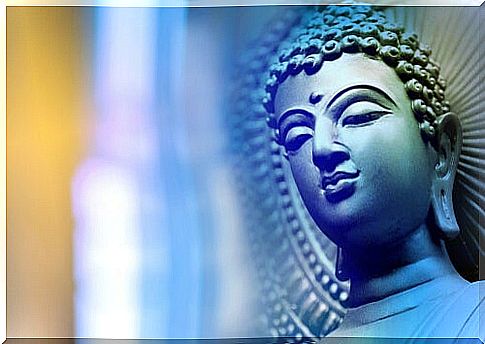The Heart Sutra, A Buddhist Text Full Of Wisdom

The Heart Sutra is a highly popular text that was born out of a Buddhist school. It is considered the most studied and researched of all Buddhist texts. It attracts many followers of this philosophy because of its brevity and because it is seen as a compendium of wisdom.
It is very interesting that such a short text has been so researched by Buddhists and that it is identified as one of the teachings that require a lifetime to understand. The heart sutra has only 14 verses, originally written in Sanskrit. Likewise, it ends with a mantra that is classified as very powerful.
The heart sutra is believed to date from the 1st century, although some think it may be older. It talks about several of the central concepts of Buddhism, such as emptiness, detachment, compassion, form, will, and consciousness.

The void and the heart sutra
Most of the heart sutra focuses on the concept of emptiness, but this has a different meaning than “nothingness” as we Westerners understand it.
The void is not absence, or lack, because the void of what is not or who is not, is full of that absence. The same happens with the lack: it is not empty, but full of that imaginary presence of what is missing.
When Buddhists speak of emptiness, they mean that nothing that exists has an intrinsic reality. It means that everything is changing and that it is always mutating, that is, being and ceasing to be. What we perceive with our senses is only the appearance of things; That is why it seems to us that all reality is “full”, but it is not.
The void has to do with the constant mutability of everything that exists. Nothing ceases or is completely different from the rest, nor is it pure, nor is it impure, nor is it complete or deficient.
What there are are mental formations that lead us to see reality as we perceive it. However, these mental formations are not reality, since the latter is independent and is changing at all times, without our perceiving it.
The enigmatic mantra
Contrary to what some people think, mantras are not magic words to attract good luck or achieve certain goals. In Buddhism, these are a way to reach certain levels of meditation. Its function is to contribute to the awakening of consciousness.
The mantra with which the heart sutra ends is as follows: Gate gate Pāragate Pārasaṃgate ‘Bodhi svāhā .
It is in Sanskrit and its translation would be the following: “ Departing, Departing, Starting at the top, Starting at the top, Awakening . So be it ”. There are also those who have translated it as follows: “He has gone, he has gone, he has gone further. Completely exposed, stripped. Awake. Salvation!”.
Those connoisseurs point out that the Sanskrit word Gate refers precisely to emptiness, but on a personal level. It is equivalent to the concept of “not-me”. What starts or goes is the self.
The mantra is then a call to detach oneself from the self, which is considered a source of misunderstandings and suffering. The self, in this case, would become a synonym for “ego.” What is sought is for the ego to dissipate so that emptiness emerges.

Teaching the Heart Sutra
Although the heart sutra is a highly complex text, deep down what it shows is the way to achieve “awakening” or “salvation” and this consists of abandoning the ego to remain empty and thus access perception and understanding. deep of reality.
In other words, whoever is guided by his eyes, his ears, his hands, etc., as well as his mind, is destined not to know or understand reality. Likewise, whoever manages to free himself from the senses and from the dynamics of his mind, manages to merge with reality and understand it, not as an intellectual act, but in terms of a transcendental experience.
Awakening is precisely that state in which we stop perceiving the world through limited means such as the senses and our own mind. Enlightenment equates to full understanding, which, in turn, brings with it two great virtues for Buddhists: detachment and compassion.









